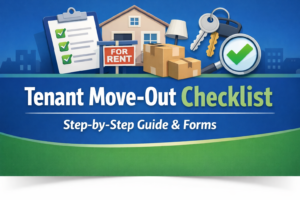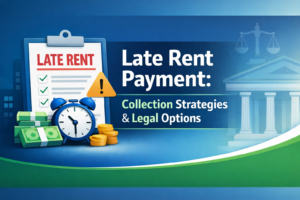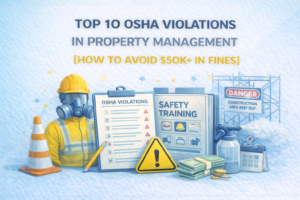
Managing properties involves more than just collecting rent and fixing leaky faucets. One of the most crucial and often overlooked aspects is accounting. Property management accounting, sometimes called property accounting, ensures you track income, expenses, and the overall financial health of your properties. Whether you manage a single property or a large portfolio, understanding property management accounting is essential for making smart financial decisions, avoiding costly mistakes, and keeping everything organized.
Many people ask, “What exactly does property management accounting involve?” or “Why is property accounting crucial?”
The answer is simple: without it, you risk losing track of rent payments, missing tax deadlines, and overspending on maintenance. Having a solid grasp of these accounting fundamentals can save you time, money, and stress, helping your property management business run smoothly and efficiently.
Understanding Property Management Accounting
Property management accounting is the process of tracking, recording, and managing financial transactions related to property operations. This includes rent collection, maintenance expenses, taxes, and utility costs. Property accounting is vital for maintaining accurate financial records, meeting tax obligations, and ensuring your properties remain profitable.
Common questions include:
- “How is property management accounting different from general accounting?”
It focuses specifically on property-related transactions, lease agreements, and financial reporting for property owners. - “Why should property managers prioritize accounting?”
To efficiently handle tenant payments, manage security deposits, and comply with financial regulations.
Key Terms in Property Management Accounting You Should Know
Familiarity with essential accounting terms helps you manage property finances more effectively. Here are the basics:
| Term | Definition |
|---|---|
| Assets | Valuable items you own, including properties and cash reserves. |
| Liabilities | Outstanding debts like loans, unpaid invoices, or mortgages. |
| Equity | The remaining value after subtracting liabilities from assets. |
| Revenue | Money earned from rent, parking, and additional property services. |
| Expenses | Costs associated with upkeep, repairs, and utilities. |
| Accounts Receivable | Rent or fees owed by tenants. |
| Accounts Payable | Payments due to vendors or service providers. |
| General Ledger | The comprehensive record of all financial transactions. |
| Chart of Accounts | Categories used to organize your financial data. |
| Security Deposits | Funds held in trust to cover tenant damages or unpaid rent. |
Essential Principles of Property Management Accounting
Starting with property management accounting doesn’t have to be complicated. Follow these foundational steps:
- Separate Business and Personal Finances:
Open dedicated bank accounts for your property operations to simplify record-keeping. - Select the Right Accounting Method:
- Cash Basis: Recognizes income and expenses when money changes hands. Ideal for smaller portfolios.
- Accrual Basis: Records transactions when they’re incurred, offering a clearer financial picture.
- Create a Clear Chart of Accounts:
Categorize income, expenses, assets, and liabilities for streamlined tracking. - Invest in Property Management Accounting Software:
Platforms like Propertese automate rent collection, expense monitoring, and financial reporting. - Reconcile Financial Accounts Monthly:
Regular checks ensure your records match bank statements, preventing costly mistakes.
How to Handle Property Management Trust Accounting Effectively
Managing tenant deposits and other trust funds requires strict adherence to property management trust accounting standards. Here’s how to stay compliant:
- Maintain Separate Trust Accounts:
Never mix tenant funds with operational accounts. - Record Transactions Promptly:
Document deposits and withdrawals as they occur. - Provide Transparent Financial Reports:
Regularly update tenants and property owners with clear statements. - Adhere to Local Laws:
Regulations vary, so always ensure compliance in your jurisdiction.
Must-Know Property Accounting Reports
Financial reports offer valuable insights into your property’s performance. Focus on these key documents:
- Income Statement (Profit & Loss):
Summarizes earnings and expenses over a set period. - Balance Sheet:
Shows assets, liabilities, and equity at a specific point in time. - Cash Flow Statement:
Monitors incoming and outgoing funds to track liquidity. - Owner Statements:
Provides property owners with detailed financial breakdowns. - Tenant Ledgers:
Keeps records of individual tenant payments and outstanding balances. - Security Deposit Ledger:
Tracks deposit amounts and deductions.
Exploring the Property Management Accounting Process
The property management accounting cycle includes several steps to ensure accurate and comprehensive financial records:
- Record All Transactions:
Keep a log of every financial activity, big or small. - Post Journal Entries:
Assign transactions to appropriate accounts. - Update the General Ledger:
Reflect recent activity in your primary financial record. - Prepare a Trial Balance:
Verify that credits and debits align. - Create Financial Statements:
Compile reports like the income statement and balance sheet. - Make Adjusting Entries:
Correct discrepancies and account for accrued items. - Close the Accounting Period:
Finalize books for accurate year-end reporting.
Practical Tips for Better Property Management Accounting
Enhance your accounting process with these actionable suggestions:
- Automate Rent Payments: Reduce delays and save time.
- Log Expenses Regularly: Small purchases can add up quickly.
- Build a Reserve Fund: Be ready for emergency repairs or vacancies.
- Review Reports Each Month: Catch potential issues early.
- Stay Current on Tax Requirements: Avoid penalties by keeping up with changes.
- Communicate Financial Updates: Keep property owners and tenants informed.
- Consider Professional Support: An experienced accountant can provide valuable guidance.
Frequently Asked Questions
A: Property accounting focuses on income, expenses, and financial reporting specific to property management, unlike general accounting, which covers broader business operations.
A: Absolutely. It simplifies tasks like rent collection, expense tracking, and compliance management.
A: Monthly reviews help catch discrepancies and ensure financial health.
A: Trust accounting ensures tenant and owner funds are handled legally and transparently.
A: While possible, hiring a professional can prevent costly mistakes and save time.
Wrapping Up: Why Property Management Accounting Matters
Property management accounting is the backbone of a successful rental business. By understanding the basics, implementing sound systems, and using the right software, you can manage your finances with ease. Following trust accounting procedures, keeping reports up-to-date, and staying informed on regulations will not only improve financial performance but also strengthen relationships with property owners and tenants. With a strong accounting foundation, your property management operations will be more efficient, compliant, and profitable.
Table of Contents
Stay Updated
Subscribe to get the latest news, industry trends, blog posts, and updates...




